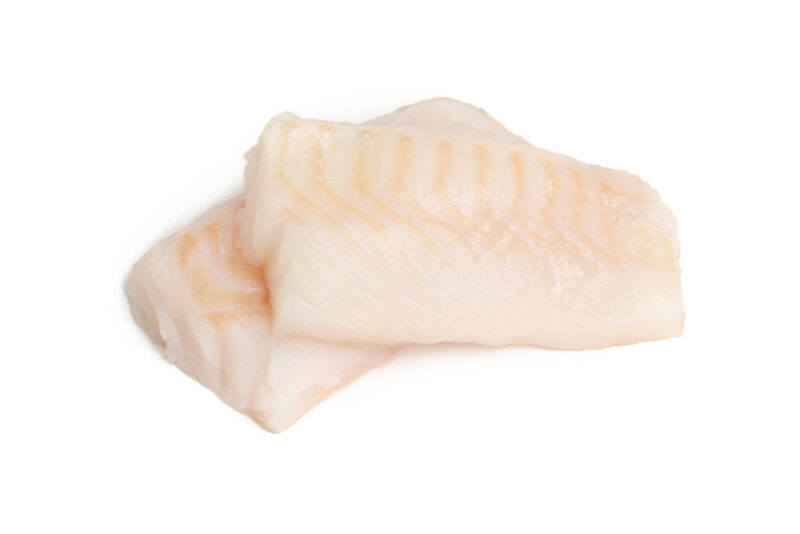Can Dogs Eat Haddock? Vet Approved Facts & FAQ
By Brooke Bundy
Updated on

As long as it’s cooked and free of choking hazards such as bones, fish is usually safe for dogs to digest. Haddock, in particular, is an excellent choice to feed your canine since it’s rich in omega 3 fatty acids, which are beneficial to their skin and coat. This saltwater fish is also considered a lean meat with low mercury levels, making it a healthier choice than tuna. Let’s learn more about feeding your dog haddock, including what to look for.
Is Haddock a Healthy Choice for Canines?
Haddock is a lean protein that packs beneficial nutrients such as omega 3 fatty acids and vitamin B. Dogs cannot make their own omega 3 fatty acids so they need to come from their diet. Omega 3s are anti-inflammatory, beneficial for your dog’s skin and coat and can help with stiff joints.
You might consider giving your dog an omega 3 supplement or treating them to haddock from time to time. The mercury levels are lower than some popular fishes, such as tuna, which makes haddock a safer choice.
Vitamin B improves energy levels and cognitive function. It’s a vital nutrient for all life stages but may be especially important as your dog ages. Some studies1 have shown that special nutrient blends in diets, which included higher levels of vitamin B, have improved the signs of canine dementia.

When Haddock May Not Be Okay
In general, haddock is safe for dogs to eat unless it’s raw, loaded with sodium, or your dog is allergic to fish. Even though food allergies receive a lot of talk, a recent study from Banfield found that fewer than one in 100 dogs are affected. Out of that number, there’s a slim 2% chance that fish is the source of their frustrations. Food allergies generally cause skin signs, but of course, your dog could still be intolerant to certain foods, which usually results in GI upset. Food intolerance is not the same thing as being allergic as allergies also affect the immune system. Fish isn’t known to commonly have adverse effects in canines like dairy or beef. That’s why we say fish is usually a dog-friendly meat.
Raw fish is a bit more controversial. The American Veterinary Medical Association discourages pet parents from giving their dogs raw or undercooked fish because of the risk of bacteria and parasites. Other sources say that the risk of contracting these illnesses is too low to be trifled with, especially if the fish are harvested in the United States. It’s usually better to be safe than sorry when it comes to food-borne illnesses. If you do decide to feed raw protein sources such as fish then you will need to be extra careful with hygiene measures, especially around children or people who are immunocompromised.
Canines need salt as part of a healthy diet, but most times their food already contains their daily allowance. Too much sodium can actually poison your dog, so you’ll want to avoid giving them salt-laden foods such as canned meats and smoked versions of haddock which are usually higher in salt. Most seasonings such as garlic and onion are also toxic, so you want to only feed your dog fully cooked, plain fish.

Conclusion
If your dog loves fish, you’ll be happy to know that haddock is a safe choice that supplies them with extra vitamin B and omega 3s. As long as it’s cooked to a proper temperature and is free of bones and seasonings, haddock can be an excellent addition to support a well-balanced diet. Always consult your veterinarian as you plan your dog’s meals to make sure they’re receiving all the nutrients they need to live a healthy life.
Featured











